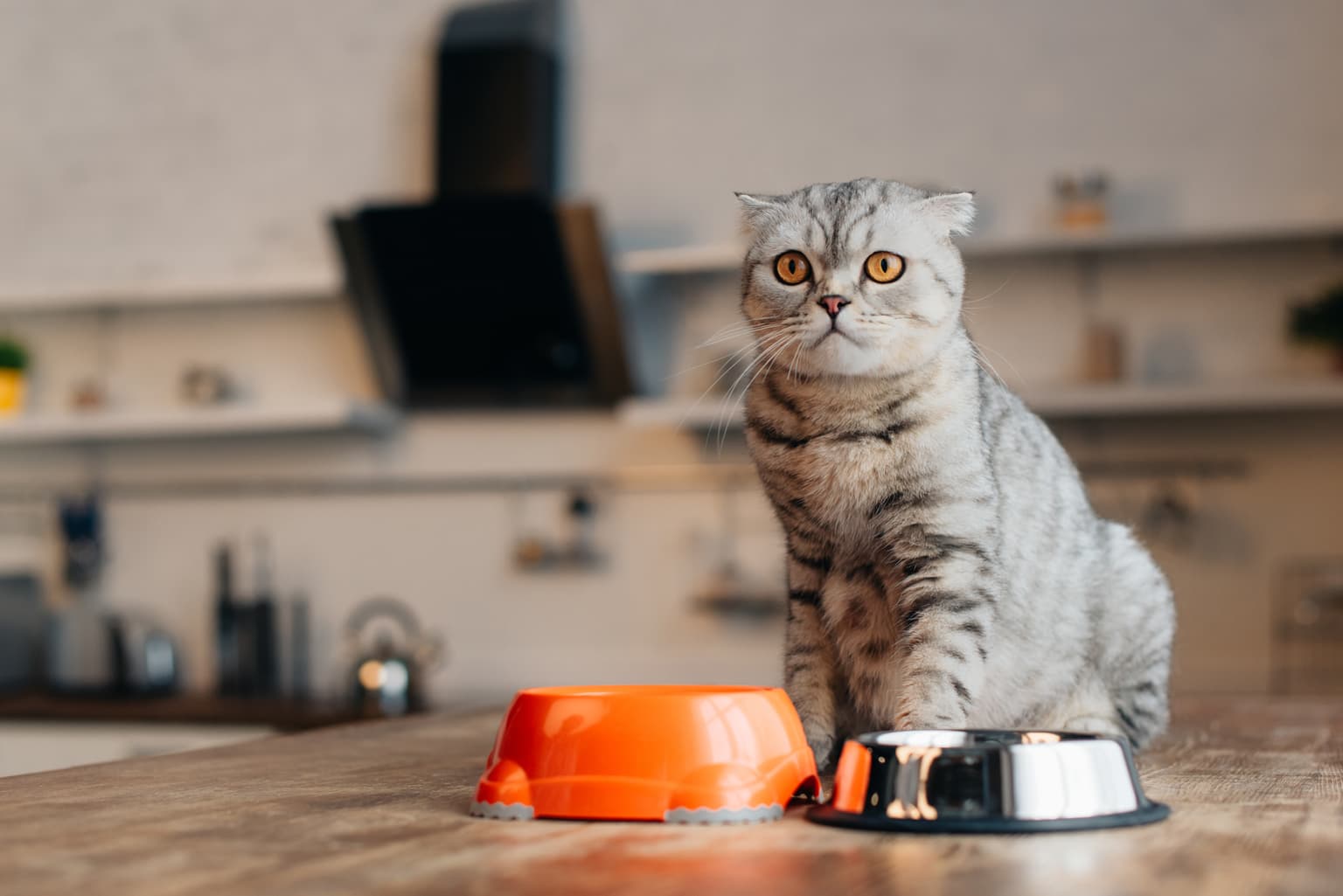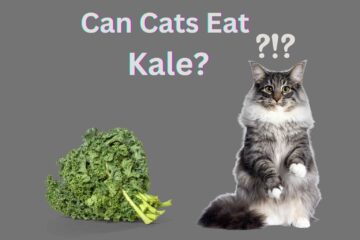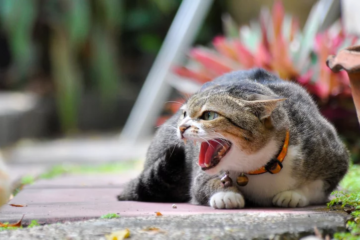Minerals are the building blocks of life, aren’t they? It is the talk of every town, family, school, hospital, and medic that minerals like magnesium are essential for the holistic development of the body. But have you ever noticed the notion that what is the significance of minerals like magnesium for other creatures like cats? Magnesium plays a fundamental role in the development of various bodily functions like maintenance of bone structure, muscle support, and nerve maintenance.
Interestingly for cats, magnesium is even more vital and mandatory, as it helps prevent urinary tract problems and ensures their health and overall well-being. But how do you come to know that your cat is getting enough natural magnesium? And what will happen if their diet lacks this? In this article, we will explore the natural magnesium, its importance, sources, potential benefits, and consequences of excessive dosage. Let’s discuss this!
Table of Contents
What is natural Magnesium?
Organically, natural magnesium is a mineral found in nature in various organic sources like fish, leafy greens, and nuts. Additionally, it can be acquired from mineral deposits in the earth. It is usually available in multiple other forms, like chelated magnesium (easier for the body to absorb) and mineral-based supplements. But here, the question arises: why do we prefer natural magnesium over synthetic magnesium? The answer is quite simple and practical: natural magnesium is preferable to synthetic because it contains the least amount of artificiality, is bio-available, is easier to digest, and comes with fewer side effects, making it a perfect choice for cats.

Why natural magnesium is Important for Cats?
Magnesium is Important for a cat’s overall health, it serves the following functions in a cat’s body.
Muscle Function and Development
Magnesium plays a healthy role in muscular development, it also ensures smooth and effective muscular movement. It reduces the chances of cramps, spasms, and stiffness, keeping cat active and agile.
Nerve Signaling and Maintenance
Secondly, magnesium also promotes the neural system by facilitating the transmission of signals between the brain, nerves, and muscles, ensuring the nervous system responds immediately to stimuli.
Provide bone Strength
Most importantly, like the other key elements, calcium and phosphorus, magnesium is mandatory for building and maintaining strong bones. It contributes to bone density, minimizing the risk of skeletal issues and diseases as your cat ages.
Promote Heart Health
Interestingly, magnesium plays an excellent role in regulating heart rhythm and supports cardiovascular health by stabilizing normal blood pressure and promoting natural blood flow. This is especially important for preventing heart-related issues in cats.
Stabilizing Urinary Health
The secondary function of magnesium is that it prevents cats from urinary problems. It minimizes the risk of bladder crystal formation, a common issue that leads to health distortion and other urinary problems.
Aids in Stress Relief
In the end, magnesium is also crucial in the regulation of multiple hormones and it also facilitates the cats to cope with stress and anxiety in a more excellent fashion.
Ensure your cat receives adequate and balanced amounts of magnesium in their diet as it supports their overall health and helps to prevent a range of common health issues.
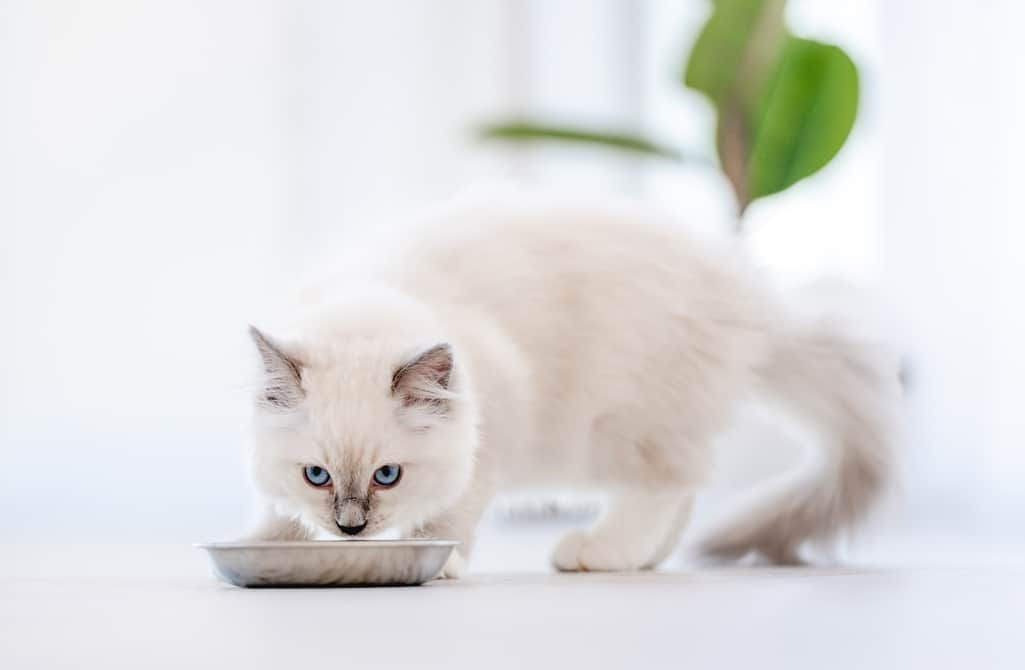
Perfect your cat’s diet with our quick Pet Calorie Calculator! Find daily caloric needs based on weight, age, and activity for a joyful life! Pet Calorie Calculator
What are the Signs of magnesium deficiency in cats?
A deficiency of magnesium can cause multiple problems in cats’ health which may lead to a severity. Apart from this common signs are as follows!
a. Common Signs
Magnesium deficiency can cause noticeable physical and behavioral changes in cats.
1. Muscle and skeletal issues
It may cause spasms and twitching due to an imbalance in muscular function.
2. Low energy levels
A deficiency or lack of magnesium causes lethargy, lack of playfulness, and Weakness in the cats.
3. Sudden Behavioral Change
An increase in the magnitude of irritability, aggression, and anxiety, which occur due to lack of magnesium intake.
b. Overlapping Conditions and Symptoms
Various symptoms of magnesium deficiency overlap with other health issues, such as kidney disease or malfunctioning, malnutrition, or stress-related disorders. For Instance:
1. Muscular trembling may also indicate electrolyte imbalances.
2. Lethargy could be the product of anemia or other chronic or critical conditions.
c. Long-term Health Implications
If left uncured, magnesium deficiency can lead to:
Muscular Weakness: interestingly, a deficiency of magnesium can lead to muscular Weakness, affecting mobility and strength.
Bone Problems: Secondly, it also reduces bone density and a higher risk of fractures.
Heart Health concerns: In severe cases, it also causes irregular heart rhythms and heart failure.
Urinary Tract Problems: Lastly, it leads to urinary tract problems, like crystal formation.
10 vet approved Sources of natural magnesium for cats
Fish
Fish is one of the basic and fundamental elements that are present in most cat foods, and the reason is that cats actually love fish. There are the different types of fish in which magnesium is present, which are listed below;
1. Salmon
2. Mackerel
3. Sardines
Similarly, apart from magnesium, fish also contains omega-3 fatty acids, which are very effective for the skin and give a healthy shine to the skin and heart. Before feeding fish to your furry friend, keep in mind certain things, like making sure the fish is cooked and removing all the bones, as these bones damage the walls of the stomach. Avoid adding salt or seasonings and serve in moderation in order to avoid excessive fat intake. However, fish also contains a high amount of protein and vitamins, which are very effective and essential for your cat’s health.
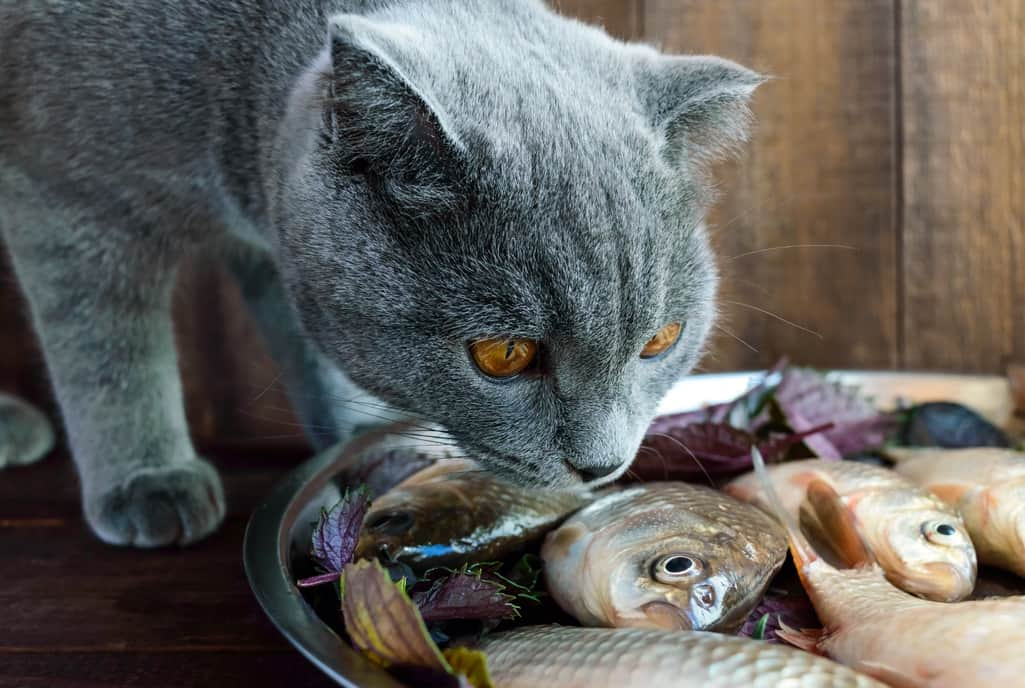
Pumpkin Seeds
If your cat is often facing the problem of constipation then consider the pumpkin seeds as these seeds helps your cat to prevent the constipation. Therefore, make sure that the seeds are unsalted and roasted in order to improve the performance of digestive system, the other thing that you need to do that always serve the seeds in crush or grind form so that cats can easily consume it easily.
Besides magnesium, pumpkin seeds also contain zinc, which makes them an occasional supplement for a balanced feline diet.
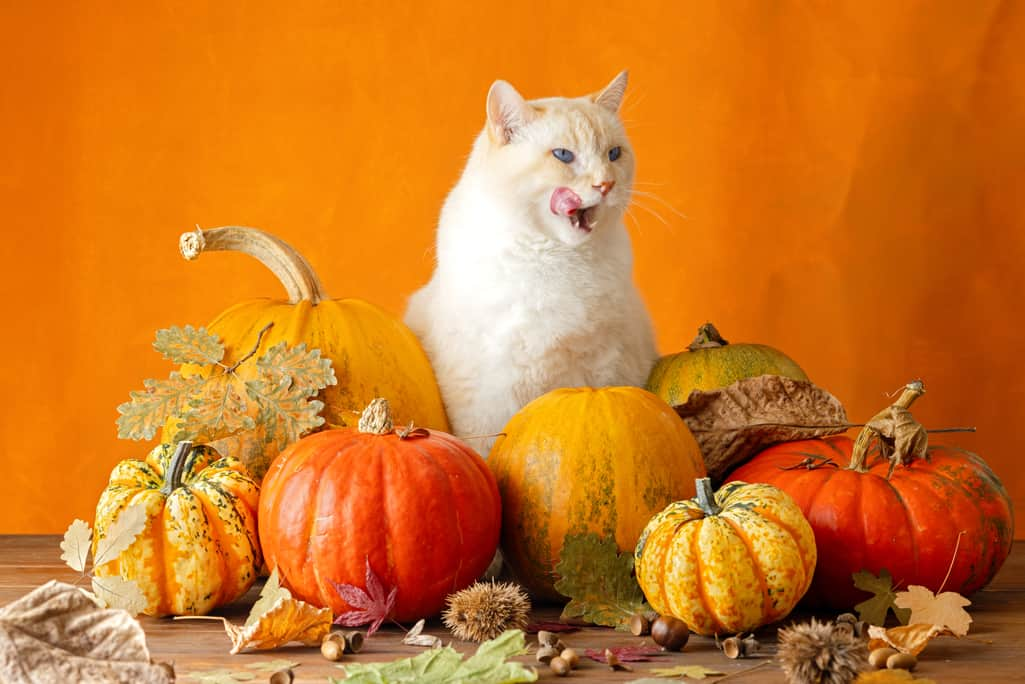
Chicken Liver
In fact it is the best source of magnesium for cats, along magnesium, it also filled with vitamins A and B, as well as iron. However, the important thing that you need to know about it that you should always serve it in small portions in order to avoid the excess of vitamin A. It is one of the source of Natural Magnesium For Cats
Spinach
Actually, spinach is a leafy green veggie rich in magnesium, fibers and antitoxidents. Due to these elements it is beneficial for cat’s immune and digestive system. Since raw spinach is not good for cats as it is difficult for them to digest so, always try steaming or boiling it before serving as this process can improve the nutrient absorption.
However, it’s essential to serve spinach in small quantities because large amounts may interfere with calcium absorption, which can lead to imbalances.
Turkey
Turkey is filled with magnesium, Vitamin B and lean protein, as these elements are effective for the muscle health and the immune system of cats. Remember that, the best way to serve turkey is by using plain, cooked cuts, free of any salt, oils, or seasoning. However, avoid processed turkey products, which may contain harmful additives, and always mix them with regular food.
Beef
Beef contains the magnesium, iron and important amino acids that are very crucial and effective for muscle health. Although beef does not contain too much amount of magnesium as the other sources contain but still it is a good source of magnesium for cats. It’s important to prepare beef without seasonings, which can be harmful to cats.
Peas
Peas are good source of magnesium, fiber, and vitamins which are very effective for cat’s digestive system and offer a low calorie addition to cats’ diet. Therefore, Cooked and mashed peas are easier for cats to eat and digest, and they can be mixed into other foods to provide added nutritional variety. Peas are also effective for weight management in cats.
Green Beans
Green beans are low calorie vegetables containing the fiber and magnesium, as it is good for digestion and weight management in cats. Therefore, cooked and chopped green beans are easy for cats to consume. Due to their low-calorie content quality it is an ideal treat for maintaining a healthy weight without sacrificing nutritional value.
Quail Eggs
Indeed, quail eggs are smaller than the chicken eggs and are very good source of magnesium, and proteins, making them a highly tasty food for cats. It can be served in a raw or cooked form depending upon your cat tolerance and preference. Due to their small size and high nutrient content, quail eggs make an excellent occasional addition to a cat’s diet, supporting muscle health and providing a natural source of minerals.
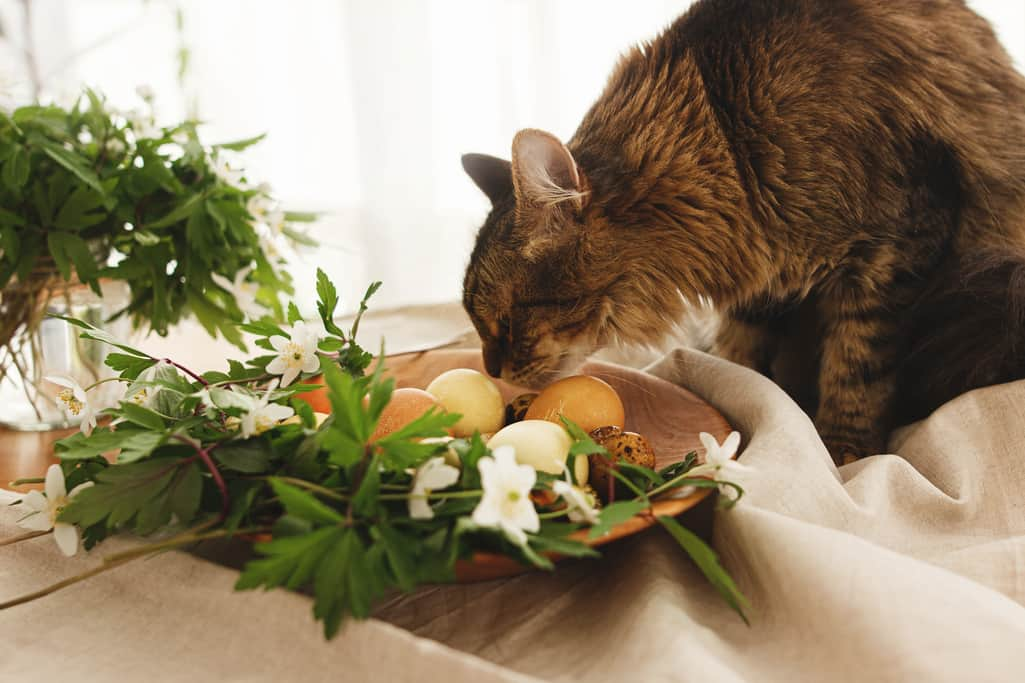
Explore more. pets prose
Sweet potatoes
Organically, Sweet Potatoes Contain modest levels of magnesium along with fiber, antioxidants, and vitamins, they should always be served in small amounts due to their carbohydrate content.
How to introduce natural Magnesium into Cat Diet?
- Add a small amount of magnesium-rich foods like cooked fish or finely cut veggies to their meals to make their meals nutritious.
- Go for high-quality commercial cat foods that already possess a balanced amount of magnesium.
- Always use flavored magnesium powders, tablets, or liquid drops specifically composed for cats. These can be mixed into wet food for easier consumption and digestion.
- Slowly serve magnesium-rich ingredients to prevent sudden dietary changes. Mix supplements in favorite treats or mix them into foods with strong scents to improve acceptance.
- Lastly, always monitor your cat for any sort of adverse reactions and consult your veterinarian to ensure they’re receiving the correct magnesium intake for their health needs.
If you want to buy a supplements for your cat the do click Pet Honesty Cat Hip
Final Thought
In a nutshell, magnesium is mandatory for cat’s overall health, supporting muscles, nerves, bones, and heart function while preventing urinary issues. However, too much or too little amount can cause health deformities. Analyze your cat’s diet critically and consult a veterinarian to ensure they receive the right amount for a happy, healthy life.
Faq's
Which foods are rich in magnesium for cats ?
Leafy greens, nuts and seeds, whole grains, fish, avocados, bananas, and dark chocolate are excellent sources of magnesium, but always serve these food in moderation.
Is eggs rich in magnesium?
No eggs are not particularly rich in magnisum, while they contain a small amount of it, rather eggs contains other nutrient in rich amount like the proteinand vitamin B12.
Is magnesium bad for cats?
Magnesium is essential for cats but in a small amount because it is essential for muscle and nerve function. High amount of magnesium can lead be urinary issues.
Is magnesium good for cats?
Yes, magnesium is beneficial for cats but philosophy here is moderation.
Can I give magnesium citrate for constipation?
It is recommend that not to give magnesium citrate for constipation as it leads to digestive problemsin cat.
Is magnesium oil safe for cats?
Magnesium oil may not be safe for cats, as they could ingest it while grooming, which may cause adverse effects. Always check with a vet before using any topical treatments on your cat.
Is magnesium citrate safe for cats?
Magnesium citrate is not typically safe for cats and can lead to side effects, especially if not dosed correctly. Always talk to your vet before considering any form of magnesium supplement. Always prefer Natural Magnesium For Cats.


